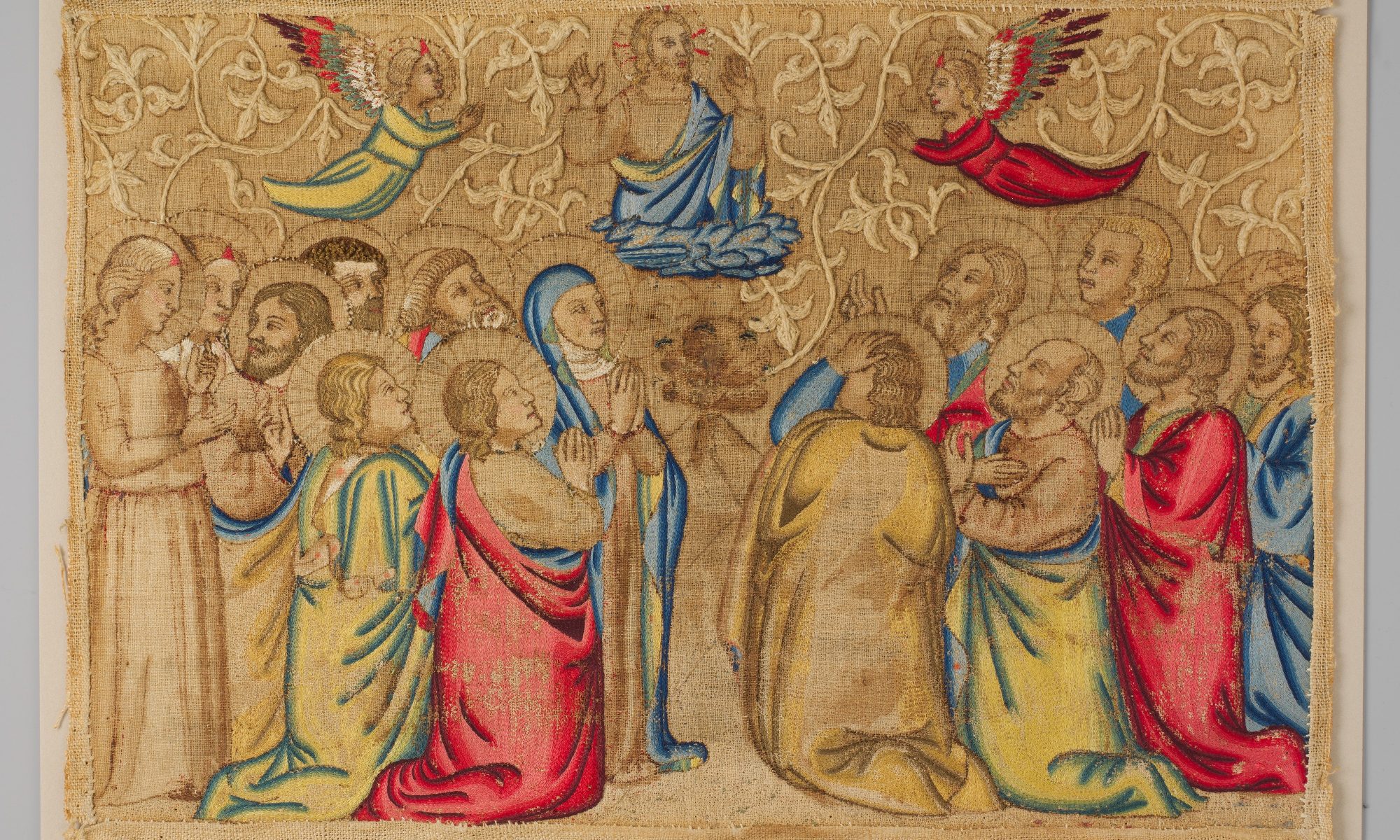John 17:1-11a
Does anyone know where Jesus now? Three days ago, we celebrated the Ascension of Jesus, so he must be in heaven now. However, where is heaven? Is it somewhere in the sky or in the cosmos? No! we do not understand heaven as a physical place, but we understand it as a state in which there is God. In other words, heaven is wherever God is found. If you know the song ubi caritas, you will know where God is found. The song begins with the words “where charity and love prevail, there God is ever found.” Now, you can see the signs of heaven are love and charity. Heaven is not far from us, but it is right here among us when we show love and charity to each other. Thus, Jesus’ ascension means that he returned to the Father, but it does not mean that he went far away from us. He is still present here among us to intercede for us, to give us the hope of one day being fully united with him in heaven.
Being aware that while Jesus ascended to heaven, Jesus is present among us, what should we do. The readings and gospel today advise us to do three actions, namely believe, pray, and rejoice. The gospel is Jesus’s petitions for his disciples. In his petitions, we find that who belongs to God are those who accept Jesus’s words and believe that Jesus is sent by God. Thus, if you want to belong to God and to be united with him, you first and foremost have to believe in Christ and his words. We can explicitly express our belief in Christ through our acts of worship. The true belief in Christ must foster us to appreciate the necessity of our worship to him. He does not need our praise, and our praise does not increase anything for him, but the praise given to him is for our own sake. In addition, we can show our belief in his words through the love of Scripture because Scripture is the word of God. That is, we frequently listen to the Scripture in the liturgy or by ourselves in private. We read the Scripture, ponder it, and live out its messages in our lives.
Pray! The first reading from the acts of the apostles tells us that “After Jesus had been taken up to heaven the apostles returned to Jerusalem. […] “[They] devoted themselves with one accord to prayer, together with some women, and Mary the mother of Jesus, and his brothers.” Prayer was very important for them at that moment because they feared the Jews. Prayer brought them peace and courage. We, followers of Jesus, also need to imitate the example of the apostles. That is, we have a prayerful lives. In prayer, we can offer to God everything that matter to us, such as our fear, our joy, and our sadness. We surrender to God all our life concern. He will strengthen and console us. We have two types of prayers, namely communal prayer, and personal prayer. The apostles in the reading were doing communal prayer. We now can do it by attending mass and celebrations of sacraments, by holding prayer in group or in family. Besides, we are encouraged to take sometimes by ourselves alone to pray with God. In personal prayer, we can cultivate deeper our relationship with God whom we believe and worship.
Rejoice! Normally, we rejoice in delighted events. For instance, Ascension is truly a delighted event for us to rejoice. However, in the second reading, Saint Peter exhorts us that “Rejoice to the extent that you share in the sufferings of Christ, so that when his glory is revealed you may also rejoice exultantly.” We can share in the suffering of Christ when we renounce a bad habit or forgive someone his mistakes. Sharing in the sufferings of Christ is not easily seen as a delight because we may experience wounds and pains. Wounds and pains seem impossible to make us rejoice, but the truth is that they are possible. Precisely, those who accept to forgive someone must accept some kinds of wounds, but forgiveness can bring joy and peace for both the forgiving and the forgiven. In a family, if husband and wife, parents and children accept the weakness of each other and forgive each other any mistakes, that family will be filled with joy and love. We see here that wounds and pains accepted out of love can truly rejoice us. “Rejoice to the extent that you share in the sufferings of Christ.”
Brothers and sisters! ‘Believe, pray, and rejoice’ is the message for you today. I invite you to take it home, pondering it, and living it out. May our Lord Jesus Christ strengthen our faith, lift us up in prayer, and rejoice us in sharing with his sufferings. Amen.

